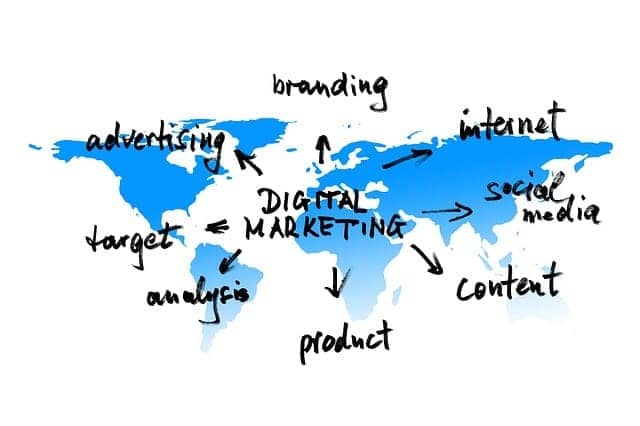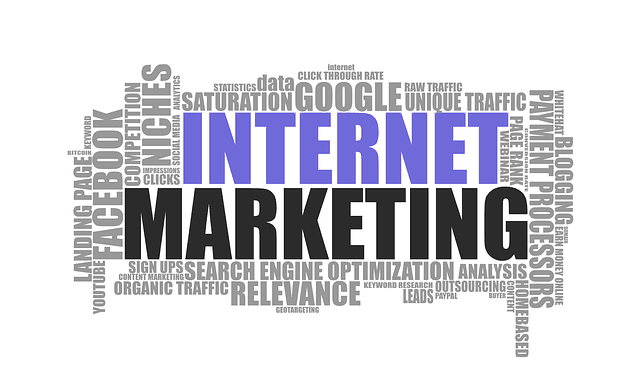Digital Marketing Fundamentals
1. What is digital marketing?
In digital marketing, promoting or selling a product or service through a website, mobile app, social media, or search engine is called digital marketing.
2. Digital Marketing Fundamentals
Digital marketing has become the most trending topic in the last few years, and every type of business can adopt digital marketing. Whether you are a big business or a small business, everyone can adopt a digital marketing approach that is tailored to their business needs. In this article, we will cover the fundamentals of digital marketing.
3. Marketing strategy
A marketing strategy is a plan that focuses on specific marketing-related topics and creates a chewable way to include what your business is where it’s at and what flaws you should fix so you can develop techniques to achieve your goals. A strong digital marketing strategy can help your business achieve digital goals through careful media selection.

In a large business, a strategy will only be successful if created through the analysis of the 7 core competencies found in our growth analysis.
- “Strategic approach”
- “Performance improvement process”
- “Management buy-in”
- “Resourcing and structure”
- “Data and infrastructure”
- “Integrated customer communications”
- “Customer experience”
3.1. Strategic Approach
In a strategic approach, companies need to define their corporate and marketing strategies. In this step, customers, competitors, external factors, and internal factors are considered, and then strategies for product, price, and place are determined. Return on investment is an integral part of this strategy.
3.2. Performance improvement process
The process of performance improvement in digital marketing refers to a systematic approach aimed at increasing the effectiveness and efficiency of digital marketing strategies by setting clear objectives, analyzing data, optimizing campaigns, and reaching audiences. Reaching and engaging targets involves constantly refining and changing strategies to achieve the best results.
The management process allows the company to evaluate the impact of a strategy and whether it needs to be adjusted. There are three types of people in social media: influencers, individuals, and consumers. A plan is created. The management process allows the company to evaluate the impact of the strategy and determine whether it needs to be adjusted. Three types of people in social media, such as influencers, individuals, and consumers, engage with them in the engagement phase. Companies create strategies by defining the motivations of these three personalities and developing strategies based on their shape.
3.3. Management buy-in
Management buy-in in digital marketing refers to obtaining support and commitment from senior leadership and decision-makers for digital marketing initiatives and strategies. This includes demonstrating digital marketing efforts’ value and potential return on investment (ROI), aligning them with organizational goals, and fostering a collaborative environment where management plans and executes these initiatives. Actively participates in import.
3.4. Resourcing and structure
Resourcing and structuring in the context of digital marketing refers to the allocation of human resources and technical and financial resources for the successful execution of digital marketing initiatives in planning and executing digital marketing initiatives. Enhancement measurement involves establishing a system of roles and responsibilities within the company.
3.5. Marketing data infrastructure
Marketing data infrastructure refers to a data-driven organization in that all marketing decisions are based on data. Marketing data infrastructure enables the organization to transform its marketing efforts into a strategic and structured process that can be measured. Coins can be improved.
3.6. Integrated customer communications
Integrated customer communication means using various digital channels and tools to communicate with customers and learn their views, including ensuring consistent content across all touch points. Essential to building relationships and enhancing their overall experience with the brand
3.7. Customer experience
In digital marketing, customer experience relates to interactions with your brand. Most of your interactions take place on your website or app. Other channels such as social media, email, and live chat also play an important role. All things help connect customers with your brand. Most customers connect with your brand online.
4. Online Marketing/Internet Marketing
The use of the internet is increasing with each passing day till 4.9 million people are using the internet all over the world. Internet marketing offers unique advantages that other marketing means cannot provide, such as TV, print, etc. The scope of reach, the ability to personalize content, and the opportunity to build long-distance relationships with consumers are just a few.

Online marketing, also known as Internet marketing or web advertising, is a form of marketing that uses the Internet to deliver promotional messages to consumers through digital channels such as search engines, email, websites, and social media. Online marketing strategies include web design, SEO, email, social media, PPC, and other web-related methods.
Following are some online marketing types:
- “Web Design”
- “SEO Marketing”
- “Social Media Marketing”
- “Content Marketing”
- “Email Marketing”
- “Pay-Per-Click (PPC) Marketing Google Ads, FB Ads”
- “Influencer Marketing”
- “Affiliate Marketing”
4.1. Web Design
Web design is the art of planning and organizing content on a website so that it can be shared and accessed online with the world. Web design is the combination of aesthetic and functional elements, a type of digital design that determines the look of a website—such as its colors, fonts, graphics, and user interface.
4.2. SEO Marketing
SEO stands for Search Engine Optimization, and SEO is a process used to improve the technical layout of any website to improve content relevance and link popularity. Its pages become more searchable and relevant to the user’s search queries, so the search engine can rank them better on the search engine results page.
4.3. Social Media Marketing
Social media is a powerful way to reach prospects and customers for all types of business marketing. People find brands, learn about, follow, and buy from them on social media. You’re missing out if you’re not on a platform like this. Great social media marketing can bring significant success to your business, create dedicated brand advocates, and even drive leads and sales.
4.4. Content Marketing
Content marketing creates a potentially attractive environment for customers to see how your product or service can solve their problems or meet their needs. How do we persuade customers to buy?
4.5. Email marketing
Email marketing sends a commercial message, usually to people using email. An email sent to a potential or existing customer is considered email marketing. They are less expensive than other advertisements.
4.6. Pay-Per-Click (PPC) Marketing
PPC also stands for the Pay Clicker advertising model, in which the advertiser pays a fee when the ads are clicked. When PPC is done right, Facebook pays for targeted website visits. Fees are minimal when working from an ad because the click is worth more than you spend.
4.7. Influencer Marketing
Influencer marketing is a form of marketing that enables businesses to collaborate with individuals to increase brand exposure and following.
4.8. Affiliate Marketing
Relevant affiliate marketing refers to promoting products or services relevant to a relevant audience and investing resources to build a following in that category through relevant blogging and social media marketing.
Inbound Marketing
Inbound marketing refers to the entire ecosystem of strategies, tools, and tactics a marketer uses to convert a website visitor into a paying customer. It includes
- Content marketing
- Email marketing
- Lead nurturing
- SEO
- Marketing automation
- Website optimization
- Website analytics.
In-bond marketing is a holistic approach to attracting customers and prospects, building trust, adding value, and delighting. Which is not a one-off or something that is quickly or temporarily deployed but focuses on long-term relationships with customers
Digital Marketing Trends 2024
The integration of artificial intelligence, the popularity of short-form video, the value of User Generated Content (UGC), and insights into the importance of authentic branding talk about the 2024 marketing landscape.
Because marketing has so much to do with consumer behavior, it doesn’t matter what marketing field you belong to. The effectiveness of your campaigns depends on trustworthiness and value. To optimize your marketing plan for modern consumers, it is essential to incorporate some modern elements into your marketing strategies as well as these strategies. Also, keep trying to improve your practices to get better results.
In this article, we will discuss social media marketing, digital marketing, brand marketing, and more on the marketing trends that will be trending in 2024.
Remember your unique customer base as you read these trends because not all trends will necessarily translate to all audiences. What could be the basic strategy for
Digital Marketing Trends for 2024
1. The Rise of Artificial Intelligence (AI)
2. Growth of Video and Audio Content
3. Exploring Niche Social Media Platforms
4. Personalization is Key
5. Interactive Content Engagement
6. Sustainability and Social Responsibility
7. Voice Search Optimization
8. Data Privacy Awareness
